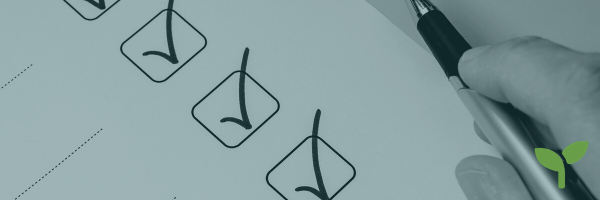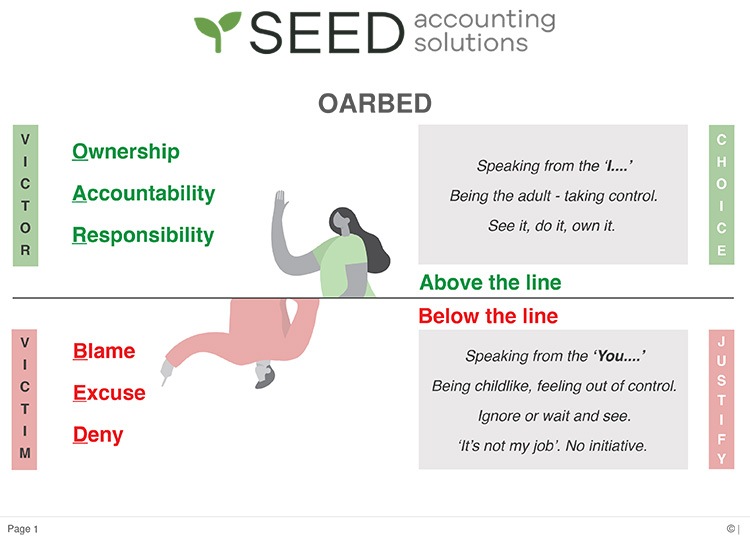
How to Manage in Times of Uncertainty
27th January 2021
20 Business Startup Essentials
1st March 2021Have you heard of the term ‘living above the line’? It is an incredibly powerful mindset, we summarise how to live above the line in more detail in this article.

Please note that we refer to ‘The team’ in this article, however this is not restricted to an employed team – it could be anyone you work with to operate your business, or even just your own thoughts and behaviours. Furthermore, this mindset applies to areas of life, and not just in business, so you may consider replacing ‘The team’ with friends, family, or even social media connections.
The ‘line’ that we refer to, separates the great from the average, and success from failure. Behaviours such as making excuses for mistakes, blaming others, confusion and negativity all fall below the line. On the other hand, when we are acting ‘above the line’, we focus on the team effort by taking ownership, showing commitment, creating solutions to problems, and taking determined actions for the collective outcome. While we cannot control the behaviour of others, we can control the behaviour that we demonstrate, and by living above the line, we encourage others to follow suit.
Living below the line is a breeding ground for toxic relationships and environments.
People and businesses find themselves thinking and behaving below the line whenever they consciously or subconsciously avoid accountability for their own tasks and responsibilities. It is a natural defensive tactic to think below the line. It is important to recognise this thinking as ‘below the line’ but choose to act above the line.
Most commonly, we see this behaviour in children, however as adults, the price we pay is poor execution, poor performance and poor morale. Ultimately this creates a toxic environment, affecting both your team and your customers.
Victimising yourself or playing the blame game causes you to act reactively, living in the rear vision, with less support from your colleagues. Living below the line may present itself in statements such as ‘I could’, ‘I might’, or ‘I can’t’. This can lead to a culture of ‘that’s not my job’, with no individual ownership of collective results. Team members react to mistakes impulsively -blaming, making excuses, and denying responsibility. This leads to a breakdown of the team ‘safety net’, resulting in more mistakes, with each mistake further impacting trust and productivity levels. Below the line behaviours leads to employees disengaging from their roles and the overall vision of the business – affecting the company’s results.
Core Values are a good way to enforce OAR and mitigate being in BED.
Living Above the Line will improve your outcomes.
So how to live above the line? By encouraging all of your team to operate above the line, you’ll breed a culture that is sustainable, supportive of its members, and encourages personal growth, greater performance and a greater commitment to your business.
It is important to understand that mistakes are still made when people are acting above the line. The difference is in how the employee reacts: admitting their mistake, taking responsibility for their actions, finding a solution and then improving the process to prevent the mistake from happening again. Above the line statements include ‘I will’, ‘I can’, and ‘I must’.
To ensure above the line behaviour, provide your team with clear accountabilities for their responsibilities and tasks so that everyone knows what is expected of them, and how their performance will be measured. Above the line environments have a culture of clear and open communication, with team members taking responsibility for their own understanding – and seeking clarification where needed, instead of working in a bubble. this builds trust and strengthens relationships, encouraging a collaborative response to crisis management, leading to more positive outcomes for your team and your customers.
Remember, we’re only human and everyone will dip below the line on occasion. It’s important that when a team member does, instead of pointing the finger, we calmly and supportively remind each other in terms of living above the line.
For other useful mindsets, take a look at our blog collection on Mindsets. We recently wrote about our Circle of Influence.




